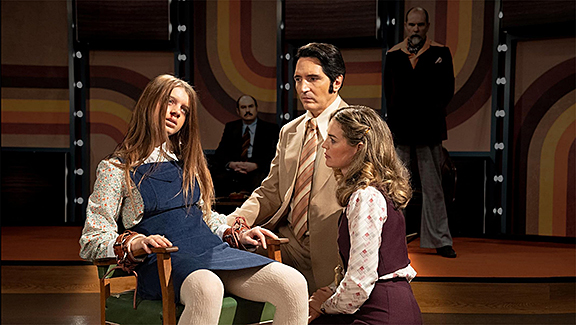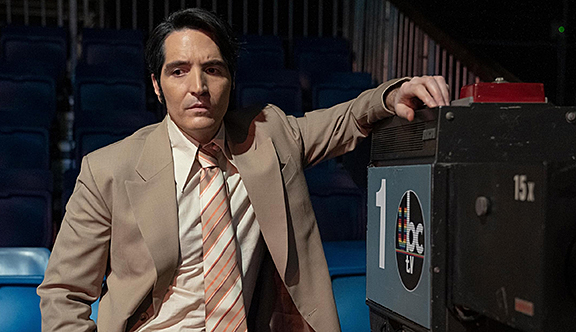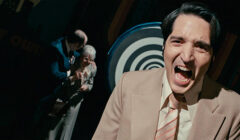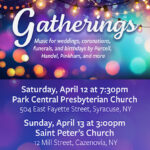Late Night with the Devil
In 1999, I was completely obsessed with THE BLAIR WITCH PROJECT. The film hadn’t even been released when I stumbled upon one of the most ingenious marketing campaigns in cinematic history.  Sold as if it was a true story, the stories about missing filmmakers and their found footage enthralled me. I was a teenager at the time, and though I knew it wasn’t real, there was something incredible about the immersive nature of the project.
Sold as if it was a true story, the stories about missing filmmakers and their found footage enthralled me. I was a teenager at the time, and though I knew it wasn’t real, there was something incredible about the immersive nature of the project.
After the release of BLAIR WITCH, a slew of “found footage” movies followed. Maybe it was the result of THE BLAIR WITCH coming out at a time when I was just starting to write film reviews, but I’ve been a huge fan of the sub-genre of horror ever since. Films like QUARANTINE, PARANORMAL ACTIVITY and CLOVERFIELD blew me away, and while some have grown tired of the gimmick, I’m still elated to see when a filmmaker attempts to put a new spin on the technique.
LATE NIGHT WITH THE DEVIL, written and direct by Cameron and Colin Cairnes, puts a clever spin on familiar ground. Presented as a full broadcast of an infamous 1977 episode of a late-night talk show called NIGHT OWLS WITH JACK DELROY, it perfectly captures the era while providing an ever-escalating build-up that results in one of the most chaotic and insane finales of the year. 
Jack Delroy (the fantastic David Dastmalchian) yearns to enjoy the same success as his rival, Johnny Carson. He has a loyal fanbase and is generally well liked, but he can’t ever quite seem to overtake the king of late night. As the years go on, the show begins to fall in the ratings, and by 1977, it is running on fumes. The death of his beloved wife has been difficult enough on Jack, and with the specter of cancellation looming over him, he realizes that his performance during sweeps week will be the determining factor as to whether the show will continue. So, on Halloween, he brings on a controversial guest who will end up changing Jack’s life, and television, forever.
LATE NIGHT WITH THE DEVIL presents the episode of NIGHT OWLS in its entirety. From the opening monologue to the horrifying final segment, it shows us exactly what those tuning in on Halloween 1977 saw for themselves. There are moments of “behind the scenes” footage as well, which take place during the commercial breaks. These highlight the sense of unease that begins to permeate throughout the studio, but also shows that Jack and his producer are willing to go to any lengths necessary to save their show. 
Capturing the essence of the 1970’s aesthetic in terms of both television and cinema, LATE NIGHT WITH THE DEVIL mixes the right blend of cheese, laughs, and terror. The special effects, when they are displayed, are not exactly the polished perfection we have grown accustomed to in modern filmmaking. Yet when the black goo is expelled and the inevitable violence begins to unfold, they fit perfectly with the tone of the film. Dastmalchian is phenomenal as the plucky talk-show host who will do anything to ensure that his empire doesn’t fall. While his sidekick Gus (Rhys Auteri) grows increasingly uneasy meddling within the realm of possession and demonic forces, Jack is blinded by the possibilities of what a levitating child means for ratings. Fueled by ambition and haunted by heartbreak, he becomes a complex and remarkable character due to the pitch-perfect performance by Dastmalchian. The actor, who was the scene-stealing Polka-Dot Man in THE SUICIDE SQUAD and has also appeared in PRISONERS, BLADE RUNNER 2049, DUNE, THE DARK KNIGHT, and OPPENHEIMER is poised for a breakthrough into the mainstream, and is the main reason LATE NIGHT WITH THE DEVIL works as well as it does.
LATE NIGHT WITH THE DEVIL- B












